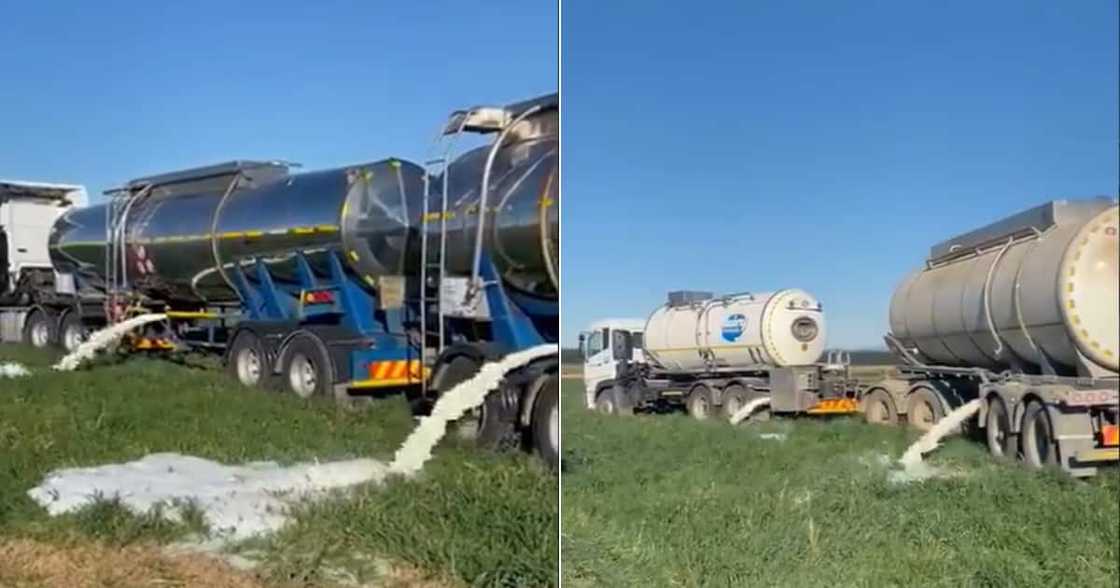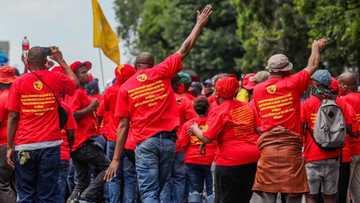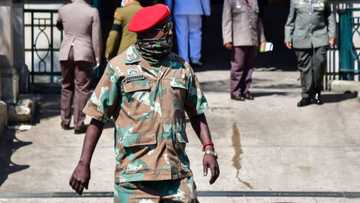SA Unrest: Farmers Forced To Spill Large Supplies of Milk
- The recent public violence in KwaZulu-Natal and Gauteng has seen the closure of a number of national roads
- Due to the closure of national roads, dairy farmers are faced with hard decisions that have resulted in a loss of stock
- Some of the national roads that were impacted by the violent protests connect South Africa's provinces
PAY ATTENTION: Click “See First” under the “Following” tab to see Briefly.co.za News on your News Feed!
The aftermath of the KwaZulu-Natal and Gauteng violent protests and looting of businesses has meant milk supplies can not be transported to many parts of South Africa and as a result, milk farmers are now forced to dump their supplies.
National roads such as the N2 and N3 highways which connect South Africa's provinces have been closed due to the unrest in KwaZulu-Natal according to IOL.

Source: Twitter
Other roads such as Ruth First Highway (M4), the north- and southbound lanes between uMhlanga and Sibaya, as well as the N2/R34 four-way in Richards Bay were also closed down.
PAY ATTENTION: Never miss breaking news – join Briefly News' Telegram channel
According to the South African Milk Processors' Organisation (Sampro) the destruction caused by the looting and violent protest will not only have a long-term impact on the milk industry but will also impact consumers, reports TimesLIVE.
The KwaZulu-Natal province is responsible for 70% of the unprocessed milk supply in South Africa, according to Sampro CEO Alwyn Kraamwinkel.
Kraamwinkel says milk supplies cannot leave the farms, a process that happens daily in normal circumstances. He also pointed out that the nutritional levels of cows were at risk as feed cannot reach the farms because of the road closures.
"Certain deliveries cannot be received because the facilities have been damaged or they have closed down,” he said in a quote by TimesLIVE.
A video shared on social media shows a milk truck spilling its supply because depots are in no position to accept milk.
The protests in KwaZulu-Natal and Gauteng began last week after former president Jacob Zuma was arrested for being in contempt of court. Zuma was sentenced to 15-months imprisonment by the Constitutional Courts.
Upset by the arrest, large numbers of people took to the streets to call for Zuma's release.
Briefly Takes a Look at the Impact of a State of Emergency in South Africa
In a recent report by Briefly News, we look at what the implementation of a State of Emergency means and how it will impact South Africa. According to the Government Gazette's State of Emergency Act of 1997; when the life of the nation is threatened by war, invasion, general insurrection, disorder, natural disaster or other public emergency and the declaration is necessary to restore peace and order.
A state of emergency is an act that can be put in by the Government that allows the President to implement regulations deemed necessary for the restoration of peace and order.
The President has the power to both implement new regulations as well as suspend regulations already implemented under the basis that it is necessary for the restoration of peace and order. This allows for law enforcement agencies to implement their own regulations.
Enjoyed reading our story? Download BRIEFLY's news app on Google Play now and stay up-to-date with major South African news!
Source: Briefly News




